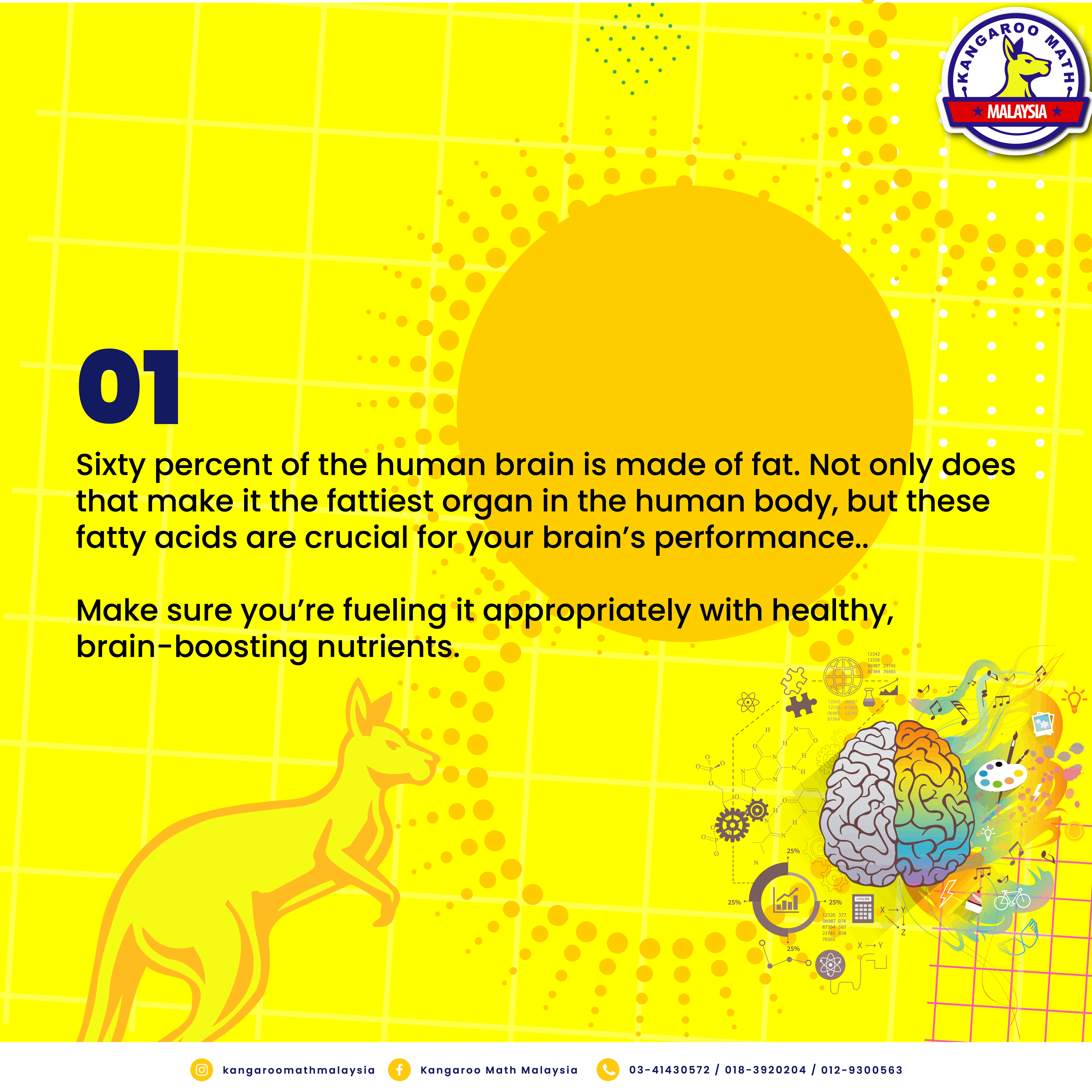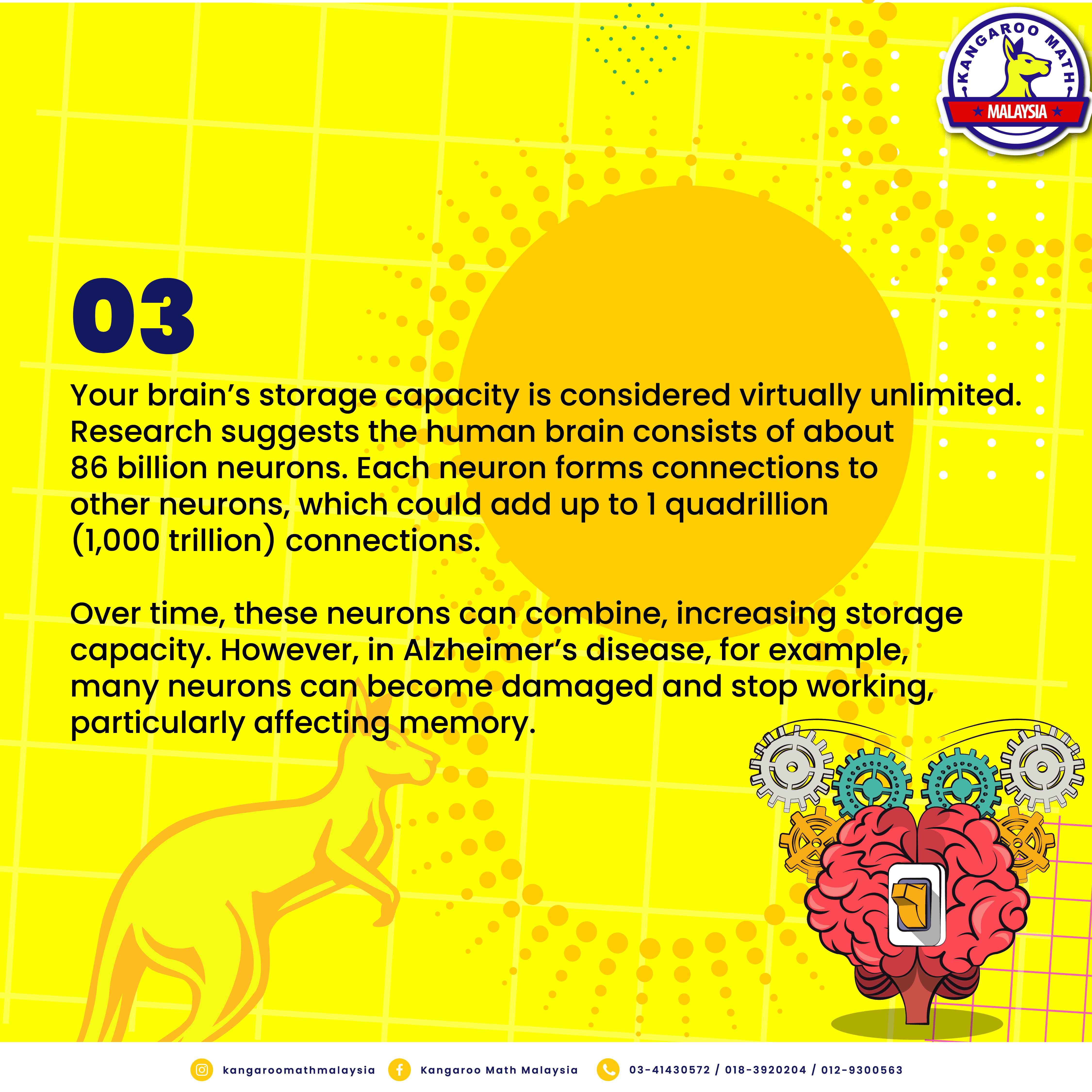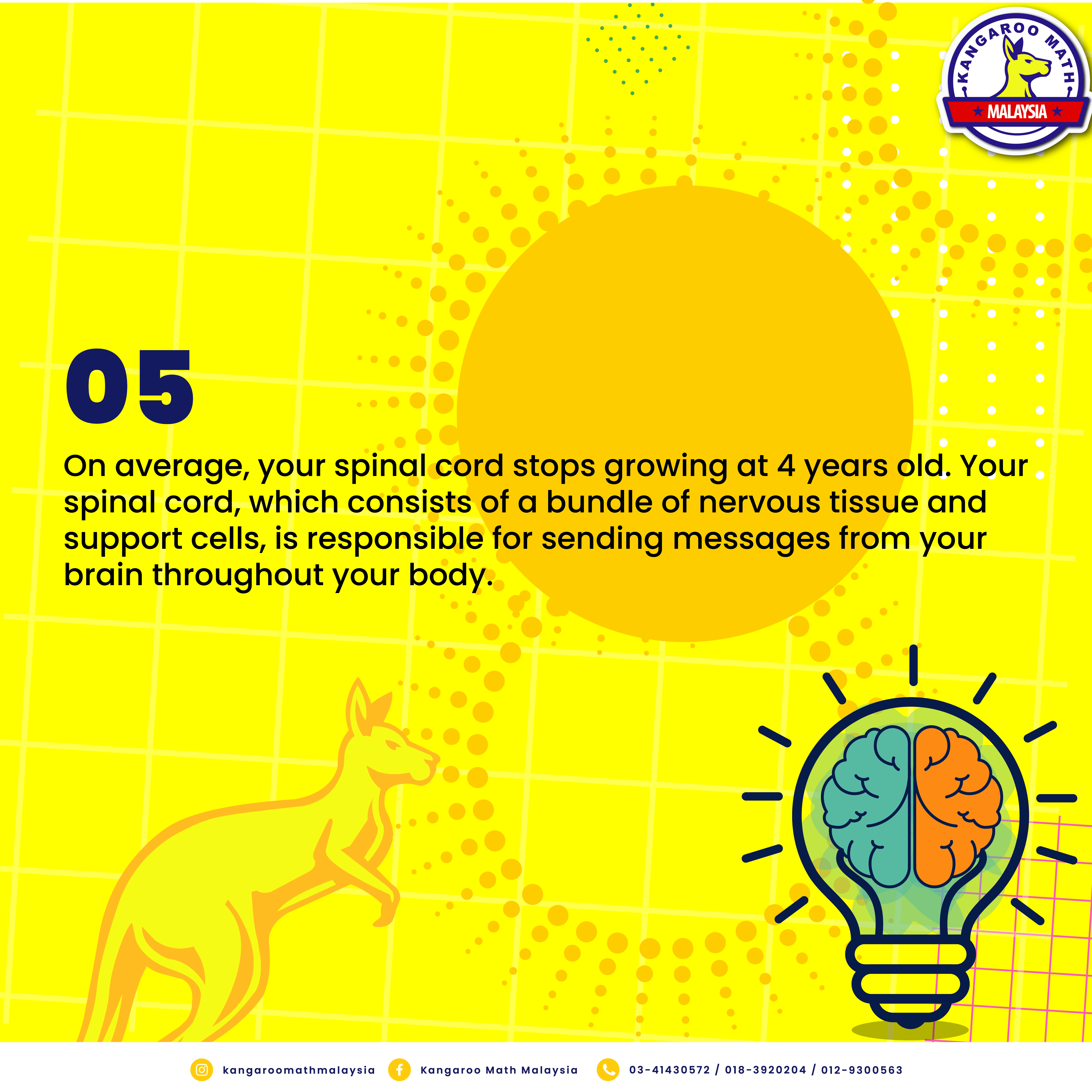The brain is part of our body’s central nervous system. It’s the most complicated part of our body. It has the ability to send and receive an enormous amount of information. Because it is so complex, there are some things doctors and scientists don’t completely understand yet about it. This also means that there are some amazing things you may not know about your brain.

Sixty percent of the human brain is made of fat. Not only does that make it the fattiest organ in the human body, but these fatty acids are crucial for your brain’s performance. Make sure you’re fueling it appropriately with healthy, brain-boosting nutrients.

Your brain isn't fully formed until age 25. Brain development begins from the back of the brain and works its way to the front. Therefore, your frontal lobes, which control planning and reasoning, are the last to strengthen and structure connections

Your brain’s storage capacity is considered virtually unlimited. Research suggests the human brain consists of about 86 billion neurons. Each neuron forms connections to other neurons, which could add up to 1 quadrillion (1,000 trillion) connections. Over time, these neurons can combine, increasing storage capacity. However, in Alzheimer’s disease, for example, many neurons can become damaged and stop working, particularly affecting memory.

Brain information travels up to an impressive 268 miles per hour. When a neuron is stimulated, it generates an electrical impulse that travels from cell to cell. A disruption in this regular processing can cause an epileptic seizure.

On average, your spinal cord stops growing at 4 years old. Your spinal cord, which consists of a bundle of nervous tissue and support cells, is responsible for sending messages from your brain throughout your body.
There are still a lot of interesting things to be learned about the part of you that does the most work. Just like the rest of your body, the brain needs a healthy diet, exercise, and the right amount of sleep to perform its best.
As a reference to the original article can be seen on the website Northwestern Medicine.





